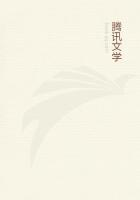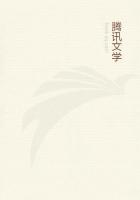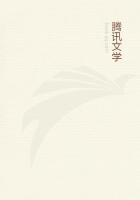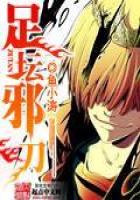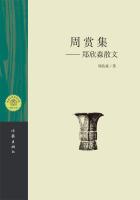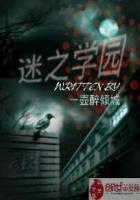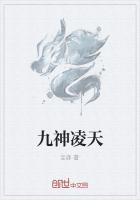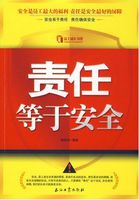An old suggestion of Dale's now for the first time bore fruit. Over the protest of the "country party" in the Company, there began to be sent each year out of the King's gaols a number, though not at any time a large number, of men under conviction for various crimes. This practice continued, or at intervals was resumed, for years, but its consequences were not so dire, perhaps, as we might imagine. The penal laws were execrably brutal, and in the drag-net of the law might be found many merely unfortunate, many perhaps finer than the law.
Virginia thus was founded and established. An English people moved through her forests, crossed in boats her shining waters, trod the lanes of hamlets builded of wood but after English fashions. Climate, surrounding nature, differed from old England, and these and circumstance would work for variation. But the stock was Middlesex, Surrey, Devon, and all the other shires of England. Scotchmen came also, Welshmen, and, perhaps as early as this, a few Irish. And there were De La Warr's handful of Poles and Germans, and several French vinedressers.
Political and economic life was taking form. That huge, luxurious, thick-leafed, yellow-flowered crop, alike comforting and extravagant, that tobacco that was in much to mould manners and customs and ways of looking at things, was beginning to grow abundantly. In 1620, forty thousand pounds of tobacco went from Virginia to England; two years later went sixty thousand pounds. The best sold at two shillings the pound, the inferior for eighteen pence. The Virginians dropped all thought of sassafras and clapboard. Tobacco only had any flavor of Golconda.
At this time the rich soil, composed of layer on layer of the decay of forests that had lived from old time, was incredibly fertile. As fast as trees could be felled and dragged away, in went the tobacco. Fields must have laborers, nor did these need to be especially intelligent. Bring in indentured men to work. Presently dream that ships, English as well as Dutch, might oftener load in Africa and sell in Virginia, to furnish the dark fields with dark workers! In Dale's time had begun the making over of land in fee simple; in Yeardley's time every "ancient" colonist--that is every man who had come to Virginia before 1616--was given a goodly number of acres subject to a quit-rent. Men of means and influence obtained great holdings; ownership, rental, sale, and purchase of the land began in Virginia much as in older times it had begun in England. Only here, in America, where it seemed that the land could never be exhausted, individual holdings were often of great acreage. Thus arose the Virginia Planter.
In Yeardley's time John Berkeley established at Falling Creek the first iron works ever set up in English-America. There were by this time in Virginia, glass works, a windmill, iron works. To till the soil remained the chief industry, but the tobacco culture grew until it overshadowed the maize and wheat, the pease and beans. There were cattle and swine, not a few horses, poultry, pigeons, and peacocks.
In 1621 Yeardley, desiring to be relieved, was succeeded by Sir Francis Wyatt. In October the new Governor came from England in the George, and with him a goodly company. Among others is found George Sandys, brother of Sir Edwyn. This gentleman and scholar, beneath Virginia skies and with Virginia trees and blossoms about him, translated the "Metamorphoses" of Ovid and the First Book of the "Aeneid", both of which were published in London in 1626. He stands as the first purely literary man of the English New World. But vigorous enough literature, though the writers thereof regarded it as information only, had, from the first years, emanated from Virginia. Smith's "True Relation", George Percy's "Discourse", Strachey's "True Repertory of the Wracke and Redemption of Sir Thomas Gates", and his "Historie of Travaile into Virginia Brittannia", Hamor's "True Discourse", Whitaker's "Good News"--other letters and reports--had already flowered, all with something of the strength and fragrance of Elizabethan and early Jacobean work.
For some years there had seemed peace with the Indians. Doubtless members of the one race may have marauded, and members of the other showed themselves highhanded, impatient, and unjust, but the majority on each side appeared to have settled into a kind of amity. Indians came singly or in parties from their villages to the white men's settlements, where they traded corn and venison and what not for the magic things the white man owned. A number had obtained the white man's firearms, unwisely sold or given. The red seemed reconciled to the white's presence in the land; the Indian village and the Indian tribal economy rested beside the English settlement, church, and laws. Doubtless a fragment of the population of England and a fragment of the English in Virginia saw in a pearly dream the red man baptized, clothed, become Christian and English. At the least, it seemed that friendliness and peace might continue.
In the spring of 1622 a concerted Indian attack and massacre fell like a bolt from the blue. Up and down the James and upon the Chesapeake, everywhere on the same day, Indians, bursting from the dark forest that was so close behind every cluster of log houses, attacked the colonists. Three hundred and fortyseven English men, women, and children were slain. But Jamestown and the plantations in its neighborhood were warned in time. The English rallied, gathered force, turned upon and beat back to the forest the Indian, who was now and for a long time to come their open foe.
There followed upon this horror not a day or a month but years of organized retaliation and systematic harrying. In the end the great majority of the Indians either fell or were pushed back toward the upper Pamunkey, the Rappahannock, the Potomac, and westward upon the great shelf or terrace of the earth that climbed to the fabled mountains. And with this westward move there passed away that old vision of wholesale Christianizing.

